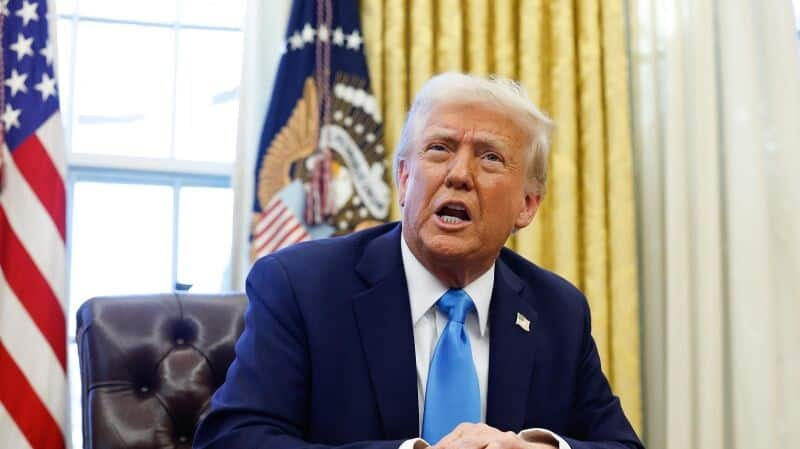
40,000 federal workers have accepted Trump's buyout offer
What's the story
Federal employees in the United States have until 11:59pm Eastern Time on Thursday to accept a resignation offer from the Trump administration.
The offer allows them to leave their jobs while getting paid through September.
An administration official told CNN that aat least 40,000 employees have already accepted this package, which was sent out on January 28.
Union opposition
Federal unions oppose Trump's resignation offer
The Office of Personnel Management informed employees last week that they had until Thursday to decide.
People who do so will get paid through September even if they do not work, according to OPM.
Unions and a dozen attorneys general, however, claim the offer is not guaranteed.
The American Federation of Government Employees and other unions filed a lawsuit in Massachusetts seeking to halt the deadline.
They demand a lawful policy instead of what they call an "arbitrary, unlawful" ultimatum.
Targeted offer
Resignation offer targets specific federal employees
The resignation offer was sent to roughly two million federal employees, excluding some workers like military personnel and immigration enforcement. But it does include Central Intelligence Agency (CIA) staffers.
Older workers are offered an early retirement incentive if they meet certain criteria. Employees must be at least 50 years old and have served for at least 20 years, or any age with at least 25 years of experience, a source told CNN.
Figure
40,000 accounts for around 2% of 2 million employees
The Trump administration expects more employees to accept the package as the deadline approaches, targeting 5% to 10% resignations from the federal workforce.
The 40,000 figure accounts for around 2% of the approximately two million federal employees who got the incentive.
The package is part of the Trump administration's attempts to reorganize the federal workforce. This includes reducing the number of employees, replacing career workers with political appointees, repealing some civil service protections, eliminating diversity initiatives, and more.